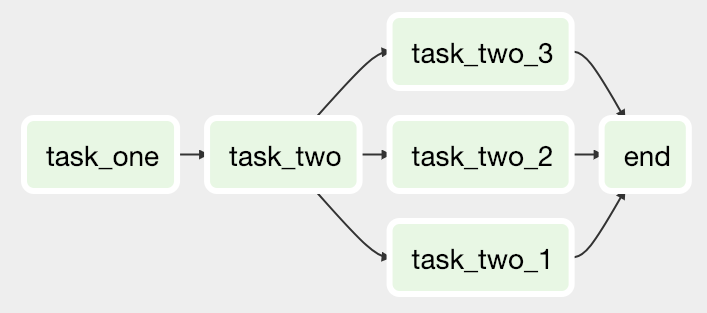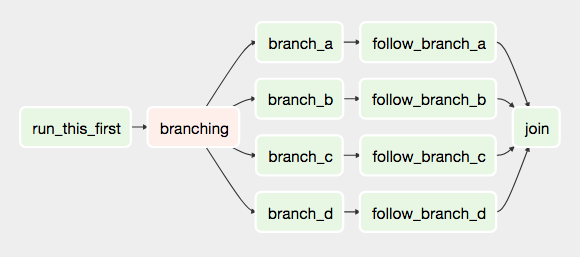

I solved the problem using FileSensor provided by airflow itself.įileSensor Waits for a file or folder to land in a filesystem. Turns out Airflow has a special module just for such requirement.
#Airflow dag not updating how to
I am not able to figure out how to trigger the tasks when the csv is pasted/brought manually to the folder.Īny help would be appreciated, thanks in advance. Python_task = PythonOperator(task_id='python_task', python_callable=my_func) Start_date=datetime(2018, 11, 1), catchup=False) as dag:Ĭonn = nnect("host=localhost dbname=testdb user=testuser") With DAG('Write_data_to_PG', description='This DAG is for writing data to postgres.', Here's the code: from datetime import datetimeįrom _rule import TriggerRuleįrom _operator import PostgresOperatorįrom _operator import PythonOperator I have written a dag which creates the table and pushes the csv content when it is triggered from the web UI.
#Airflow dag not updating update
Instead, it updates max_tries to 0 and sets the current task instance state to None, which causes the task to re-run.Ĭlick on the failed task in the Tree or Graph views and then click on Clear.I am trying to write a pipeline where the postgres db should update with contents of a csv when it is brought to the folder. Clearing a task instance doesn’t delete the task instance record. The errors after going through the logs, you can re-run the tasks by clearing them for the Some of the tasks can fail during the scheduled run. This behavior is great for atomic datasets that can easily be split into periods. If the dag.catchup value had been True instead, the scheduler would have created a DAG Runįor each completed interval between -02 (but not yet one for ,Īs that interval hasn’t completed) and the scheduler will execute them sequentially.Ĭatchup is also triggered when you turn off a DAG for a specified period and then re-enable it. Just after midnight on the morning of with a data interval between With a data between -02, and the next one will be created

at 6 AM, (or from the command line), a single DAG Run will be created In the example above, if the DAG is picked up by the scheduler daemon on

datetime ( 2015, 12, 1, tz = "UTC" ), description = "A simple tutorial DAG", schedule =, catchup = False, )
#Airflow dag not updating code
""" Code that goes along with the Airflow tutorial located at: """ from import DAG from import BashOperator import datetime import pendulum dag = DAG ( "tutorial", default_args =, start_date = pendulum. When tasks in the DAG will start running. The same logical date, it marks the start of the DAG’s first data interval, not Similarly, since the start_date argument for the DAG and its tasks points to Of a DAG run, for example, denotes the start of the data interval, not when the “logical date” (also called execution_date in Airflow versions prior to 2.2) after 00:00:00.Īll dates in Airflow are tied to the data interval concept in some way. Other words, a run covering the data period of generally does not To ensure the run is able to collect all the data within the time period. Its data interval would start each day at midnight (00:00) and end at midnightĪ DAG run is usually scheduled after its associated data interval has ended, For a DAG scheduled with for example, each of Each DAG run in Airflow has an assigned “data interval” that represents the time


 0 kommentar(er)
0 kommentar(er)
